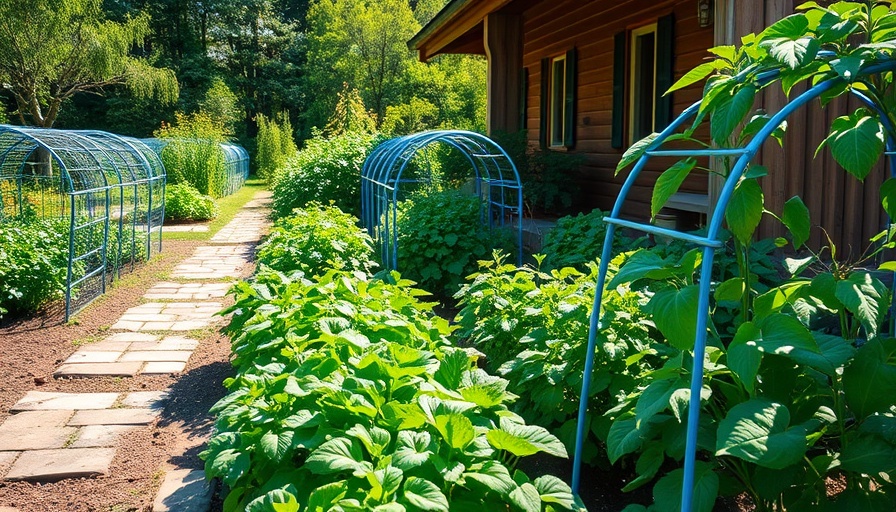
Planning the Perfect Vegetable Garden: Essential Insights
Embarking on the journey of starting a vegetable garden can be both exciting and daunting. No one denies the numerous benefits of growing your own veggies, such as improved nutrition, reduced grocery bills, and the joy of nurturing life. However, there are crucial factors to consider before you start digging in the dirt.
1. Location: Your Garden's Lifeblood
When choosing a location for your vegetable garden, remember: visibility and access are vital. A spot that you frequently see, perhaps near your kitchen, encourages you to tend to your plants regularly. Aim for an area that receives at least six hours of sunlight daily; this is key to healthy growth. If you live in a hotter climate, you might manage with a little less sun, but watch your plants closely for any signs of distress.
2. Watering Wisely: More Than Just a Splash
Watering is an art. Most mature plants require approximately one to two inches of water per week. Watering deeply encourages roots to grow down into the soil, making them more resilient during hotter stretches. Consider installing a drip irrigation system to maintain consistent moisture—this will help avoid the dreaded dilemma of dry seedlings.
3. The Benefits of Raised Beds
Raised beds are game changers. They provide superior drainage and create a healthier environment for your plants. Whether made from wooden planks or large containers, raised beds not only elevate your gardening game but also ensure that the soil is free from harmful chemicals!
4. The Secret Ingredient: Healthy Soil
Soil is the heart of your garden. Investing in quality soil can make or break your gardening experience. Incorporating compost helps in enhancing soil texture and providing essential nutrients, leading to more vigorous plant growth. Remember: healthy plants emerge from nutrient-rich soil.
5. Choosing the Right Plants: A Beginner's Guide
For first-time gardeners, it's wise to start with easy-to-grow vegetables such as tomatoes, radishes, and zinnias, which can offer rewards with minimal effort. As you gain confidence, feel free to branch out to more adventurous varieties or even herbs!
6. The Time Expectation: Patience is Key
Keep in mind that gardening takes time. Your garden will not flourish overnight, and it’s not uncommon for first-time gardeners to experience failures along the way. Commit to the process, adjust as needed, and remember that every seasoned gardener has learned through trial and error.
7. Pest Management: Getting to Know Your Allies and Foes
While gardening can attract some unwanted pests, introducing beneficial insects like ladybugs can naturally help manage harmful populations. Understanding the ecosystem of your garden will empower you to create a balanced environment.
8. Seasonal Awareness: Timing Your Planting
Timing is everything in gardening. Understanding your local climate's growing season will help you plant your garden at the right time. Research frost dates and seasonal shifts to maximize your garden’s potential.
9. Community and Resources: A Support Network
Joining local gardening clubs or online communities is an incredible resource for gardeners. Engaging with these groups can provide invaluable knowledge, support, and encouragement, making your gardening endeavor more enjoyable.
10. Embracing Experiments: The Fun of Gardening
Don’t shy away from experiments. Allow yourself the freedom to play with different vegetables and planting methods. Gardening should be a fun, explorative journey that connects you with nature.
Taking the Next Steps: Your Garden Awaits!
With this knowledge in hand, you are now prepared to tackle your gardening expedition. Don’t hesitate to dive into planting and tending your own vegetable paradise. Your garden awaits!
 Add Row
Add Row  Add
Add 




Write A Comment